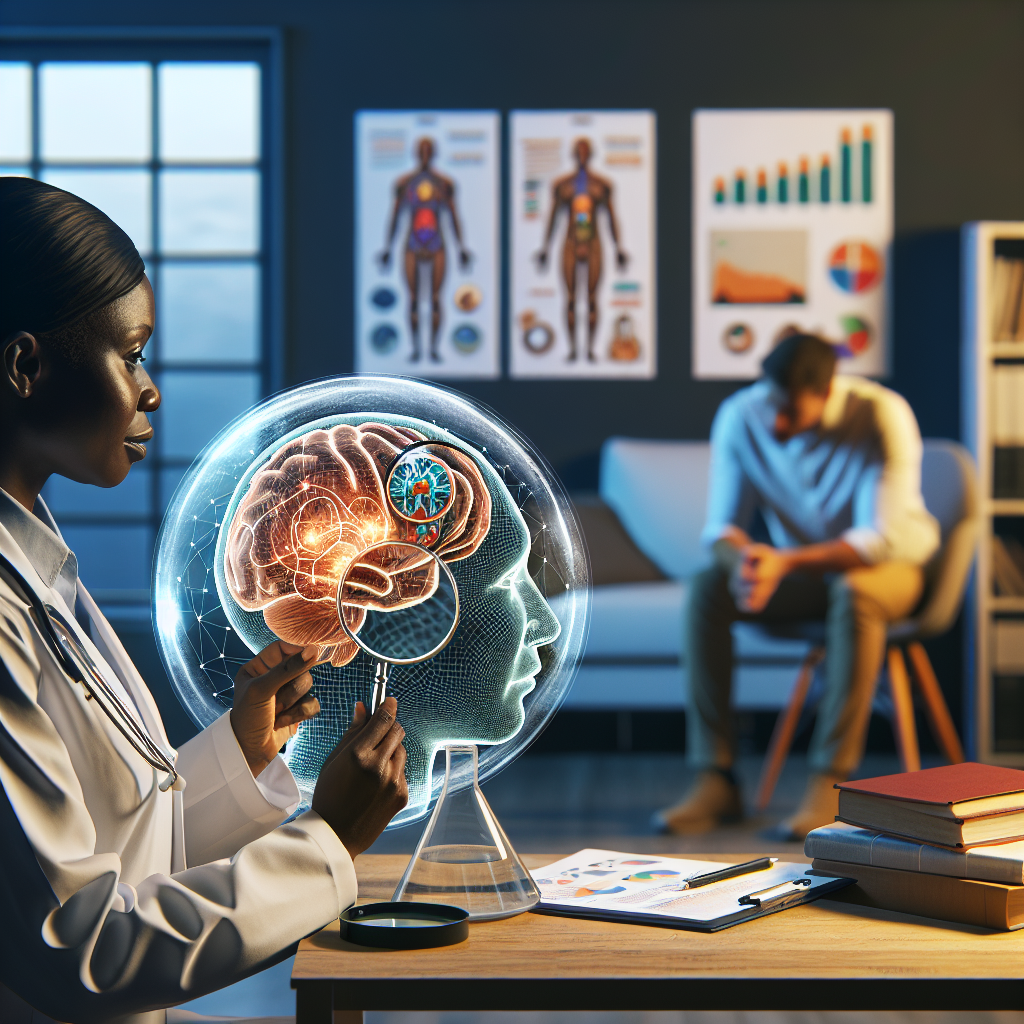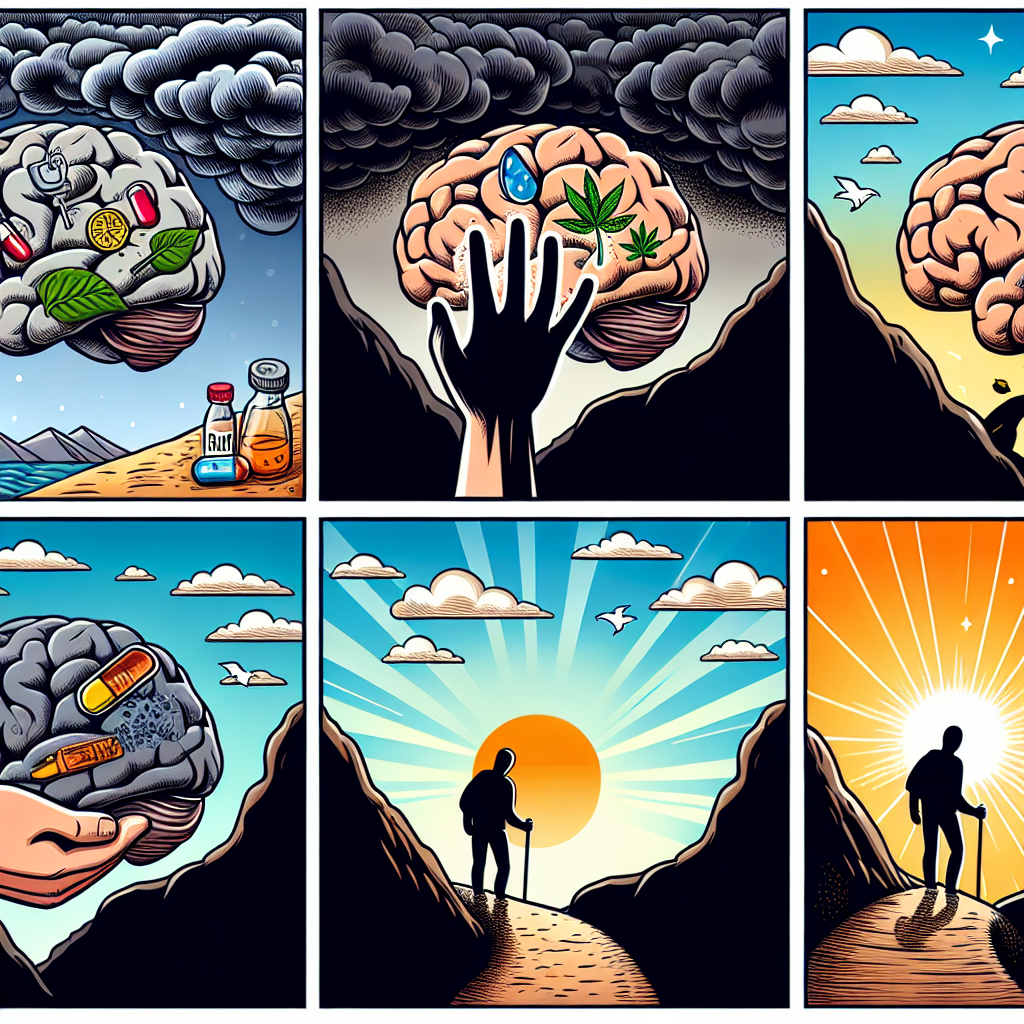-
Table of Contents

“Unlocking the Path to Healing: The Science Behind Addiction Recovery”
Introduction
Understanding the Science of Addiction Recovery
Addiction recovery is a complex and multifaceted process that involves a deep understanding of the biological, psychological, and social factors contributing to substance use disorders. At its core, addiction is a chronic brain disease characterized by compulsive drug seeking and use, despite harmful consequences. The science of addiction recovery delves into the neurobiological changes that occur in the brain, the role of genetics and environmental influences, and the various therapeutic approaches that can aid in overcoming addiction. By exploring the mechanisms of addiction and the evidence-based strategies for treatment, we can better support individuals on their journey to recovery and help them achieve long-term sobriety and improved quality of life.
The Role of Neuroplasticity in Addiction Recovery
Addiction recovery is a complex and multifaceted journey, often requiring a combination of medical, psychological, and social interventions. One of the most fascinating and hopeful aspects of this journey is the role of neuroplasticity in addiction recovery. Neuroplasticity, the brain’s ability to reorganize itself by forming new neural connections, offers a scientific basis for understanding how individuals can overcome addiction and rebuild their lives.
To begin with, it is essential to understand that addiction fundamentally alters the brain’s structure and function. Prolonged substance abuse can hijack the brain’s reward system, making it increasingly difficult for individuals to experience pleasure from everyday activities. This is where neuroplasticity comes into play. The brain’s remarkable ability to adapt and change means that, even after the damage caused by addiction, there is potential for recovery and healing.
One of the key ways neuroplasticity aids in addiction recovery is through the process of rewiring the brain’s reward system. When individuals engage in healthy behaviors, such as exercise, meditation, or social interactions, they stimulate the release of neurotransmitters like dopamine and serotonin. These chemicals are crucial for feelings of well-being and happiness. Over time, as the brain begins to associate these positive behaviors with pleasure, the neural pathways that were once dominated by addiction can be weakened and replaced with healthier ones.
Moreover, neuroplasticity is not limited to the brain’s reward system. It also plays a significant role in enhancing cognitive functions that are often impaired by addiction, such as decision-making, impulse control, and emotional regulation. Cognitive-behavioral therapies (CBT) and other therapeutic interventions leverage neuroplasticity by helping individuals develop new thought patterns and coping mechanisms. Through repeated practice and reinforcement, these new cognitive pathways become stronger, making it easier for individuals to resist the urge to relapse.
In addition to therapeutic interventions, lifestyle changes can further support neuroplasticity in addiction recovery. Regular physical activity, for instance, has been shown to promote the growth of new neurons and improve brain function. Similarly, mindfulness practices like meditation can enhance neural connectivity and reduce stress, which is a common trigger for relapse. By incorporating these activities into their daily routines, individuals can create an environment that fosters brain health and resilience.
Furthermore, social support is a critical component of addiction recovery that benefits from neuroplasticity. Positive social interactions can stimulate the release of oxytocin, a hormone that promotes bonding and reduces stress. Engaging with supportive friends, family, or support groups can help individuals build new, healthy neural connections that reinforce their commitment to recovery. This social reinforcement can be particularly powerful in counteracting the isolation and negative thought patterns often associated with addiction.
While the journey of addiction recovery is undoubtedly challenging, the concept of neuroplasticity offers a beacon of hope. It underscores the idea that change is possible, even at the most fundamental level of brain function. By understanding and harnessing the power of neuroplasticity, individuals can take proactive steps to rewire their brains, develop healthier habits, and ultimately reclaim their lives from the grip of addiction.
In conclusion, the science of neuroplasticity provides a compelling framework for understanding how recovery from addiction is not only possible but achievable. It highlights the brain’s incredible capacity for change and adaptation, offering a message of hope and empowerment. Through a combination of therapeutic interventions, lifestyle changes, and social support, individuals can leverage neuroplasticity to overcome addiction and build a brighter, healthier future.
The Impact of Nutrition on Addiction Recovery
The journey of addiction recovery is a multifaceted process that involves not only the mind and spirit but also the body. One often overlooked yet crucial aspect of this journey is nutrition. The impact of nutrition on addiction recovery is profound, as it plays a significant role in healing the body, stabilizing mood, and supporting overall well-being. Understanding how nutrition influences recovery can inspire individuals to make healthier choices that facilitate their path to sobriety.
When a person is battling addiction, their body is frequently deprived of essential nutrients. Substance abuse can lead to poor dietary habits, malnutrition, and deficiencies in vitamins and minerals. These deficiencies can exacerbate the physical and mental health issues that often accompany addiction. For instance, alcohol abuse can deplete the body of B vitamins, which are vital for energy production and brain function. Similarly, opioid addiction can disrupt the digestive system, leading to malabsorption of nutrients. Therefore, addressing these nutritional gaps is a critical step in the recovery process.
Incorporating a balanced diet rich in essential nutrients can significantly enhance the recovery experience. Proteins, for example, are crucial for repairing tissues and producing neurotransmitters that regulate mood and behavior. Amino acids, the building blocks of proteins, are particularly important for the synthesis of dopamine and serotonin, neurotransmitters that are often imbalanced in individuals with addiction. By consuming adequate amounts of protein from sources such as lean meats, beans, and nuts, individuals can support their brain chemistry and improve their emotional stability.
Moreover, healthy fats are indispensable for brain health. Omega-3 fatty acids, found in fish, flaxseeds, and walnuts, have been shown to reduce inflammation and support cognitive function. These fats can help mitigate some of the neurological damage caused by substance abuse and promote mental clarity. Additionally, complex carbohydrates, such as whole grains, fruits, and vegetables, provide a steady source of energy and help maintain stable blood sugar levels. This stability can prevent mood swings and reduce cravings, making it easier for individuals to stay committed to their recovery goals.
Hydration is another critical component of nutrition that can impact addiction recovery. Dehydration can lead to fatigue, confusion, and irritability, which can hinder the recovery process. Drinking plenty of water and consuming hydrating foods like fruits and vegetables can help maintain optimal hydration levels and support overall health.
Furthermore, the gut-brain connection underscores the importance of a healthy diet in addiction recovery. The gut microbiome, a complex community of microorganisms in the digestive tract, plays a significant role in mental health. A diet rich in fiber, probiotics, and prebiotics can promote a healthy gut microbiome, which in turn can enhance mood and cognitive function. Foods like yogurt, kefir, sauerkraut, and whole grains can support gut health and contribute to a more balanced emotional state.
In conclusion, the impact of nutrition on addiction recovery cannot be overstated. By nourishing the body with essential nutrients, individuals can repair the physical damage caused by substance abuse, stabilize their mood, and support their overall well-being. Embracing a healthy diet is not just about physical health; it is a powerful tool for emotional and mental recovery as well. As individuals embark on their journey to sobriety, understanding and prioritizing nutrition can provide them with the strength and resilience needed to achieve lasting recovery.
Q&A
1. **Question:** What role do neurotransmitters play in addiction recovery?
**Answer:** Neurotransmitters, such as dopamine, play a crucial role in addiction recovery by influencing the brain’s reward system. During recovery, the brain’s neurotransmitter levels and receptor functions gradually normalize, helping to reduce cravings and improve mood regulation.
2. **Question:** How does neuroplasticity impact addiction recovery?
**Answer:** Neuroplasticity, the brain’s ability to reorganize itself by forming new neural connections, is essential in addiction recovery. It allows the brain to adapt to new behaviors and coping strategies, helping individuals to overcome addictive patterns and develop healthier habits.
Conclusion
Understanding the science of addiction recovery involves recognizing the complex interplay of biological, psychological, and social factors that contribute to addiction and its treatment. Effective recovery strategies often require a combination of medical interventions, such as medication-assisted treatment, and behavioral therapies, including cognitive-behavioral therapy and support groups. Advances in neuroscience have highlighted the role of brain plasticity and the potential for recovery through sustained behavioral change and support. Comprehensive recovery programs that address the multifaceted nature of addiction can significantly improve outcomes, emphasizing the importance of personalized and sustained care in overcoming addiction.



